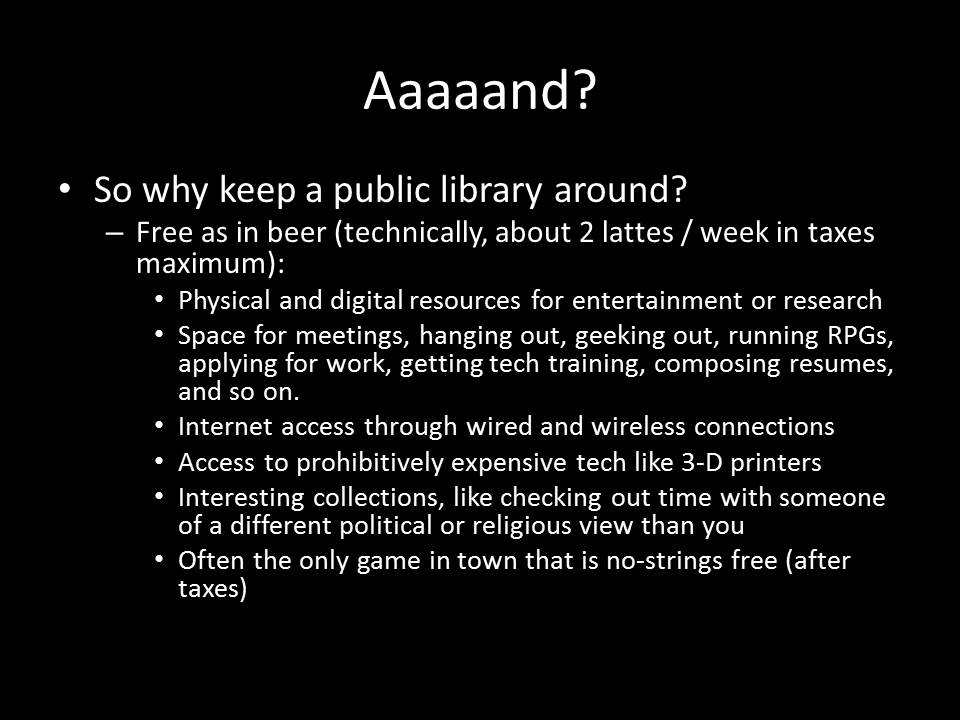Free As In Beer

So, public libraries are going to have to change. Big whoop. What good is a public library, anyway, if all these alternate content delivery systems exist and can do things better than libraries?
Well, the first line of defense a public library puts up as to why you should care about them is that their services and materials require no up-front cost to use. The cost is paid through taxes, but truthfully, property tax levies for libraries are approximately the cost of one or two utterly foul coffee drinks at your local overpriced and overrated store per month when a library is at the ceiling of their taxing ability. For people who are new to the community, recently unemployed (or the long-term unemployed of the Great Recession after the housing crash of 2007), and those who, say, child labor laws prevent from making money to buy their own things, having a community resource without up-front cost is important in being able to participate in the digital and physical community, research ideas, solve problems, and acclimate to their new environment, among other things. Free space, free Internet access, free resources, free use of really expensive technologies. Free is good.
More often than not, the public library is used for civic groups, game-players, political organizations, municipal meetings, and many other organizations that need space to house all of their members and that provide some amenities for presentation or for meetings. We're usually the only game in town that does it for free, so long as you adhere to a couple of rules about who can attend (usually, everyone), and what you can charge for your event (sometimes, cost of materials, otherwise, nothing). More often than not, we're fighting with everyone else for our meeting room space to do programming in, because our meeting room space options are just that good.
The public library is rapidly becoming, if we're not already there, the last institution that's accessible by everyone that doesn't have a rent, cover, or other up-front charge just for access. If the public library dies, a large part of your institutions and groups die, too.
BUT...
Price is only a partial defense. The open-source community knows this. "Why would you pay money for corporate drek when a perfectly good free alternative is available?" If that free alternative doesn't work, isn't designed with a good UI, requires a significant amount of training before being able to use well, or otherwise isn't able to hit that sweet spot of Superior (Or At Least Good Enough) and Just Works, an open-source alternative often fails out, even if it's a well-marketed one.